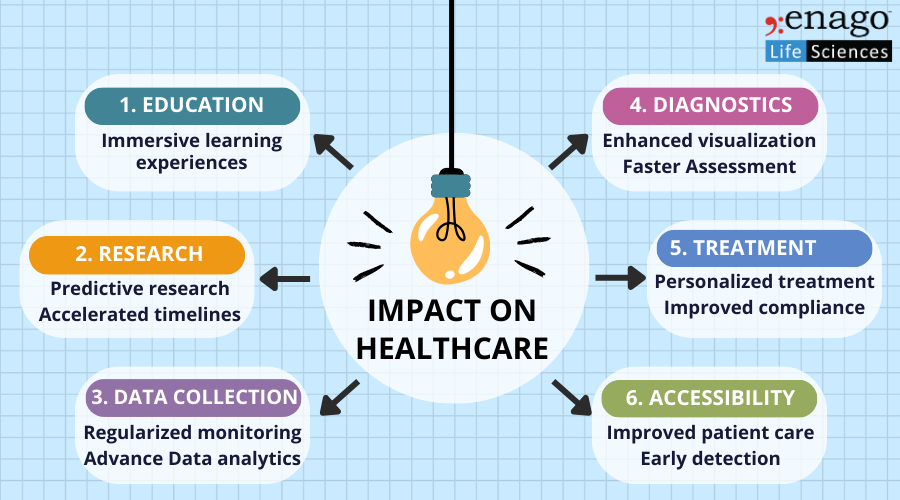Discover the groundbreaking technologies and strategies shaping the future of healthcare research and innovation. Revolutionize your knowledge and perspective today!
Table of Contents
Medical research and healthcare innovations have seen remarkable strides in recent years, paving the way for a future where personalized and precise treatments are becoming the norm. The combination of cutting-edge technologies and groundbreaking discoveries is reshaping the landscape of healthcare, offering new hope for patients and healthcare providers alike.
Nanotechnology in Medicine
Nanotechnology, the science of manipulating matter on an atomic and molecular scale, has revolutionized the field of medicine. Researchers are harnessing the power of nanotechnology to develop targeted drug delivery systems that can deliver medications directly to affected areas in the body. This targeted approach not only improves the efficacy of treatments but also minimizes side effects on healthy tissues.
Furthermore, nanotechnology is being used to develop advanced imaging techniques that allow healthcare providers to visualize and monitor diseases with unprecedented clarity. Diagnostic tools utilizing nanotechnology can detect diseases at an early stage, enabling prompt intervention and improving patient outcomes.
One groundbreaking example of nanotechnology in medicine is the development of nanorobots that can deliver drugs precisely to cancer cells, minimizing damage to surrounding healthy tissues. These advancements are redefining the way we approach disease treatment and hold great promise for the future of healthcare.
Personalized Medicine
Personalized medicine, also known as precision medicine, is a revolutionary approach to healthcare that takes into account individual genetic makeups, lifestyles, and environments to tailor treatments to each patient’s unique needs. Advances in genomics and data analytics have made it possible to identify genetic markers that influence disease susceptibility and response to treatments.
By analyzing a patient’s genetic profile, healthcare providers can select the most effective medications or therapies, reducing the risk of adverse reactions and improving treatment outcomes. Personalized medicine is particularly impactful in the field of oncology, where targeted therapies based on genetic mutations have shown remarkable success in treating various types of cancers.
This personalized approach to healthcare not only enhances treatment efficacy but also empowers patients to take an active role in their own health management. It is transforming the way diseases are diagnosed, treated, and prevented, setting a new standard for healthcare delivery.
Immunotherapy
Immunotherapy, a form of treatment that harnesses the body’s immune system to fight diseases such as cancer and autoimmune disorders, has emerged as a game-changer in the field of medicine. By boosting the body’s natural defenses, immunotherapy has shown remarkable success in treating previously untreatable conditions and achieving long-lasting remissions.

Image courtesy of lifesciences.enago.com via Google Images
One of the key advantages of immunotherapy is its ability to target specific molecules on cancer cells, allowing for precise and targeted treatment without harming healthy tissues. This targeted approach minimizes side effects commonly associated with conventional treatments, such as chemotherapy and radiation therapy.
Patients undergoing immunotherapy have reported significant improvements in their quality of life and survival rates, highlighting the potential of this innovative treatment modality. As researchers continue to explore new avenues for immunotherapy, the future of cancer treatment looks increasingly promising.
Artificial Intelligence in Healthcare
Artificial intelligence (AI) is revolutionizing healthcare by enabling healthcare providers to process and analyze vast amounts of data with unprecedented speed and accuracy. AI applications in healthcare range from diagnosing diseases and predicting patient outcomes to managing healthcare resources efficiently.
By leveraging machine learning algorithms, AI systems can identify patterns and trends in medical data that may go unnoticed by human healthcare providers. This capability enables early detection of diseases, personalized treatment recommendations, and improved patient care.
While the integration of AI in healthcare presents challenges such as data privacy and ethics considerations, the benefits far outweigh the risks. AI-powered healthcare systems have the potential to revolutionize patient care, enhancing diagnostic accuracy, treatment effectiveness, and overall healthcare outcomes.
In Conclusion
As medical research and healthcare innovations continue to advance, the future of healthcare looks brighter than ever. From nanotechnology and personalized medicine to immunotherapy and artificial intelligence, the possibilities for improving patient care and treatment outcomes are limitless.
By embracing these groundbreaking technologies and discoveries, healthcare providers and researchers are revolutionizing the way diseases are diagnosed, treated, and managed, ushering in a new era of precision and personalized care. The future of healthcare is here, and it is filled with hope, promise, and the potential for transforming lives for the better.
Generated by Texta.ai Blog Automation

